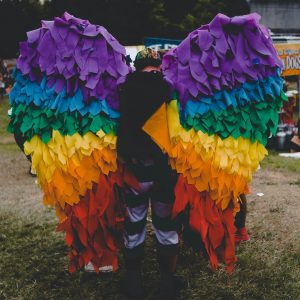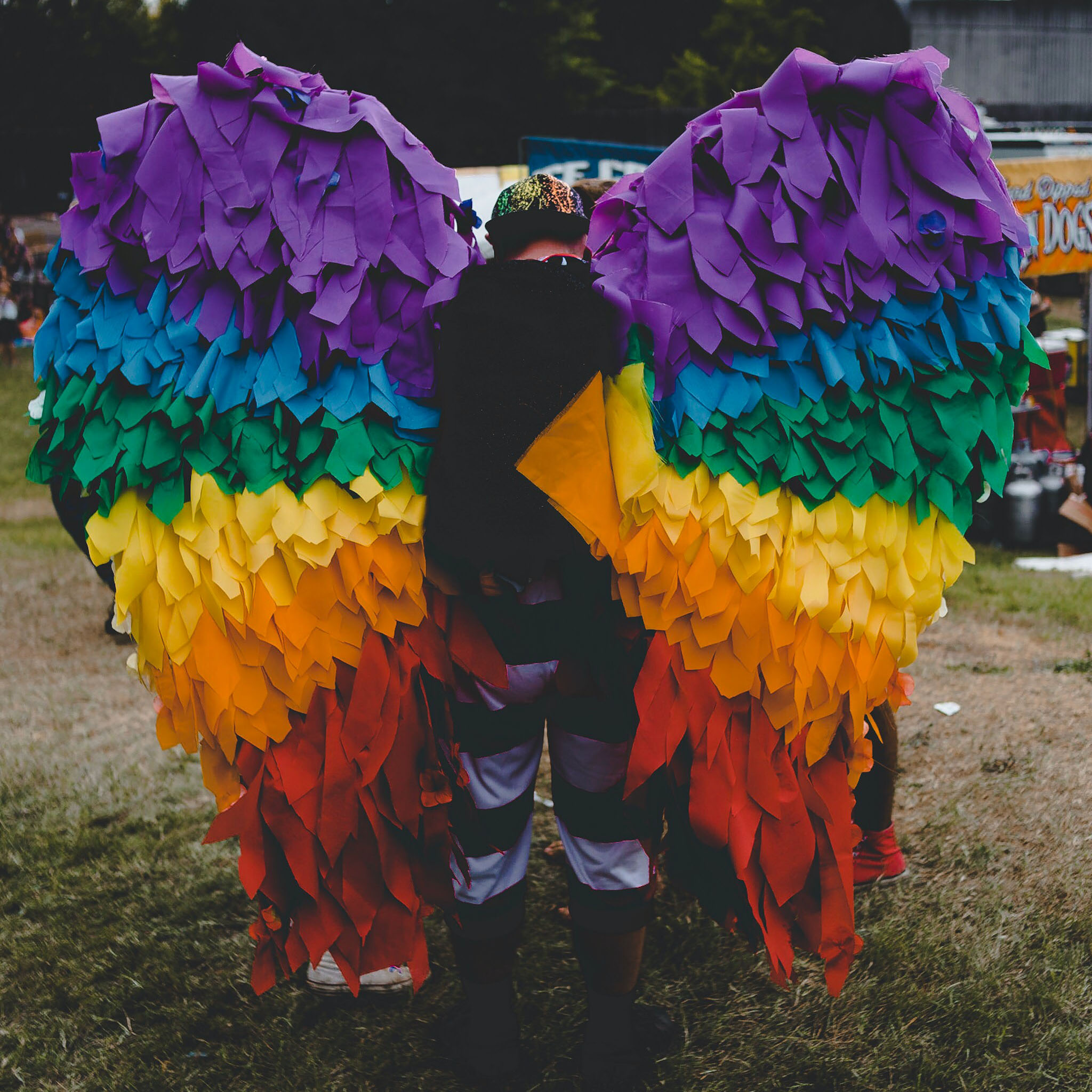
Photo: Gage Walker/Unsplash
Pride is protest. Pride is celebration. Pride is defiant.
Next month marks half a century since the first official Pride march was held in London. An event that Peter Tatchell has written about for Index in the next edition of the magazine. As Peter states:
“The idea spread to the UK, and a group of us in the Gay Liberation Front in London came up with the idea of holding a celebratory and defiant “Gay Pride” march, to challenge queer invisibility and the prevailing view that we should be ashamed of our homosexuality. The ethos of Pride was born.”
Pride was never designed to be apolitical – it was a statement. It was a demand for public acceptance at a time when being LGBT+ wasn’t just difficult – it was almost impossible to be openly queer in public. It was to a personal platform for those who were being silenced in their own communities. It embodied our collective basic right to free expression and used that right in such a way that it began a journey of changing hearts and minds.
Given how much society has changed since the first parade was held on 1 July 1972, it seems easy for some to believe that Pride is no longer an act of protest or defiance. Instead, it is now a family-friendly event. And of course, it has evolved since it was first launched – from a march of 2,000 people to a parade and a festival of over a million people with associated events throughout the country. It is no longer the obvious protest it once was, and it is a celebration of diversity and inclusion – but at its heart it remains the annual embodiment of a protest movement and we should never forget that.
Over the last 50 years Pride has been one of the most political movements in the UK. Pride campaigned against police harassment, it stood in solidarity with the striking miners in the 1980s, it campaigned against Section 28 and demanded support for people with HIV. And this year a theme won’t just be a celebration of the last 50 years – it will also be a moment to demand that the ban on conversion therapy includes therapy targeted at trans people.
Because Pride is protest.
Which brings me to my own experiences of Pride this year. I love Pride, I love the atmosphere, the chat, the protest and the music. At this year’s Pride there was a protest within a protest – targeted at some of the local politicians for their views on conversion therapy. I wasn’t surprised by the protest but rather the political response to it – “Pride is a family event, this isn’t the place for a political protest”. This lack of historical understanding should worry us all.
Because if nothing else this response demonstrated how quickly people forget societal history. How easy it is to forget why free expression is so important. Because it protects the voices of every minority group. Because it allows each one of us to have a minority opinion and to be protected when we articulate it. Because freedom of speech is one of the foundation stones of every positive change that has happened in our society. It has given every campaigner, every disenfranchised group, every equality campaigner the right to demand change.
Freedom of expression is the cornerstone of Pride, it’s the key tool which facilitates activists – through peaceful protest – to demand better from their leaders, to demand change, to empower people.
Bayard Rustin, one of Dr Martin Luther King Jr’s closest advisers and the organiser of the March on Washington, wasn’t only a civil rights leader, he was a gay civil rights leader and remains an inspiration today. When asked about his activism he said: “We need in every bay and community a group of angelic troublemakers”.
Last weekend I saw a group of angelic troublemakers at work and I was proud of them.
Because this isn’t just my personal mantra for Pride – it’s my mantra for life. I aspire to be an angelic troublemaker – as should we all.






